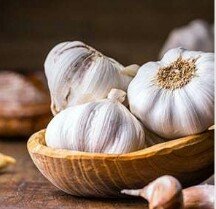What Are Prebiotics?

What Is Prebiotices ?
In spite of the fact that the expression "prebiotic" is genuinely new ,prebiotics themselves are just the same old thing new. Prebiotics are an inedible type of fiber found in a few natural products, vegetables, and starches. They go about as a nourishment hotspot for the benevolent microbes in the gut. It is critical to take note of that however every prebiotic is a fiber, only one out of every odd fiber is a prebiotic. To be considered "prebiotic" in nature, a fiber must meet the accompanying criteria.
Opposes processing and ingestion in the upper gastrointestinal tract
Is aged by the intestinal microflora
Specifically fortifies the development or action of agreeable intestinal microscopic organisms
You Can't Have Probiotics Without Prebiotics
Prebiotics and probiotics have a cooperative relationship. Prebiotic fiber is the primary nourishment wellspring of probiotics, and probiotics can't flourish without it. Ingesting a probiotic supplement or nourishment with prebiotic fiber puts the toxic prebiotics in the gut where probiotics devour them. This enables those valuable microscopic organisms to populate your gut microbiome. On the other hand, if a probiotic is devoured without prebiotic fiber, it's more averse to prosper.
The Health Benefits of Prebiotics
Despite the fact that the logical comprehension of prebiotics is moderately youthful, promising disclosures have surfaced about their medical advantages. The accompanying is only a little inspecting of the discoveries from examine into the medical advantages of prebiotics.
What Are the Different Types of Prebiotics?
Prebiotics exist in both sustenance and supplement frame. Regular cases of prebiotic fiber you will discover in supplements and nourishment include:
Acacia gum
Inulin
Lactulose
Lafinose
Oligosaccharides including:
Fructooligosaccharides
Oligofructose
Galactooligosaccharides
Transgalactooligosaccharides
Polydextrose
Psyllium
Safe starch
Wheat dextrin
While there's civil argument over which prebiotics are the best, plainly ingesting any prebiotics with probiotics or refined sustenances is helpful.
What Is a Prebiotic Supplement?
Ancient seeker gatherers ingested numerous prebiotic-containing nourishments, for example, leave plants. On the off chance that you have not carried on that custom and you don't ingest enough prebiotic-rich nourishments in your eating routine, supplementation can fill the holes.
Prebiotics are accessible as remain solitary supplements or joined with a probiotic equation to improve its viability. Contingent on your objectives, you may wish to take a mix item or an unadulterated prebiotic. Remember that a probiotic must be taken with a prebiotic to be successful, however a prebiotic can give remain solitary medical advantages.
The Best Prebiotic Foods That Everyone Should Eat
Since prebiotics are generally "new" on the wellbeing and science scene, there is some verbal confrontation over which sustenances qualify as "prebiotic nourishments" and which don't. Some medicinal services experts and researchers trust that any fiber-containing sustenance could have prebiotic benefits. That might be valid, however, for the present, we'll center around the "official" best prebiotic nourishments.
Asparagus—expended in its entire, sinewy state.
Bananas—offer a decent serving of safe starch when devoured somewhat unripe.
Chicory root—rich in inulin and a mainstream decision among probiotic producers, chicory root likewise serves as a scrumptious espresso substitute.
Garlic—brilliant for supporting the invulnerable framework and gut wellbeing.
Jerusalem artichoke—otherwise called "sunchokes," these potato-like tubers have a fragile flavor and are overflowing with prebiotic fiber.
Leeks—are prized for their wellbeing properties and prebiotic esteem.
Onions—another safe framework and gut-wellbeing champion.